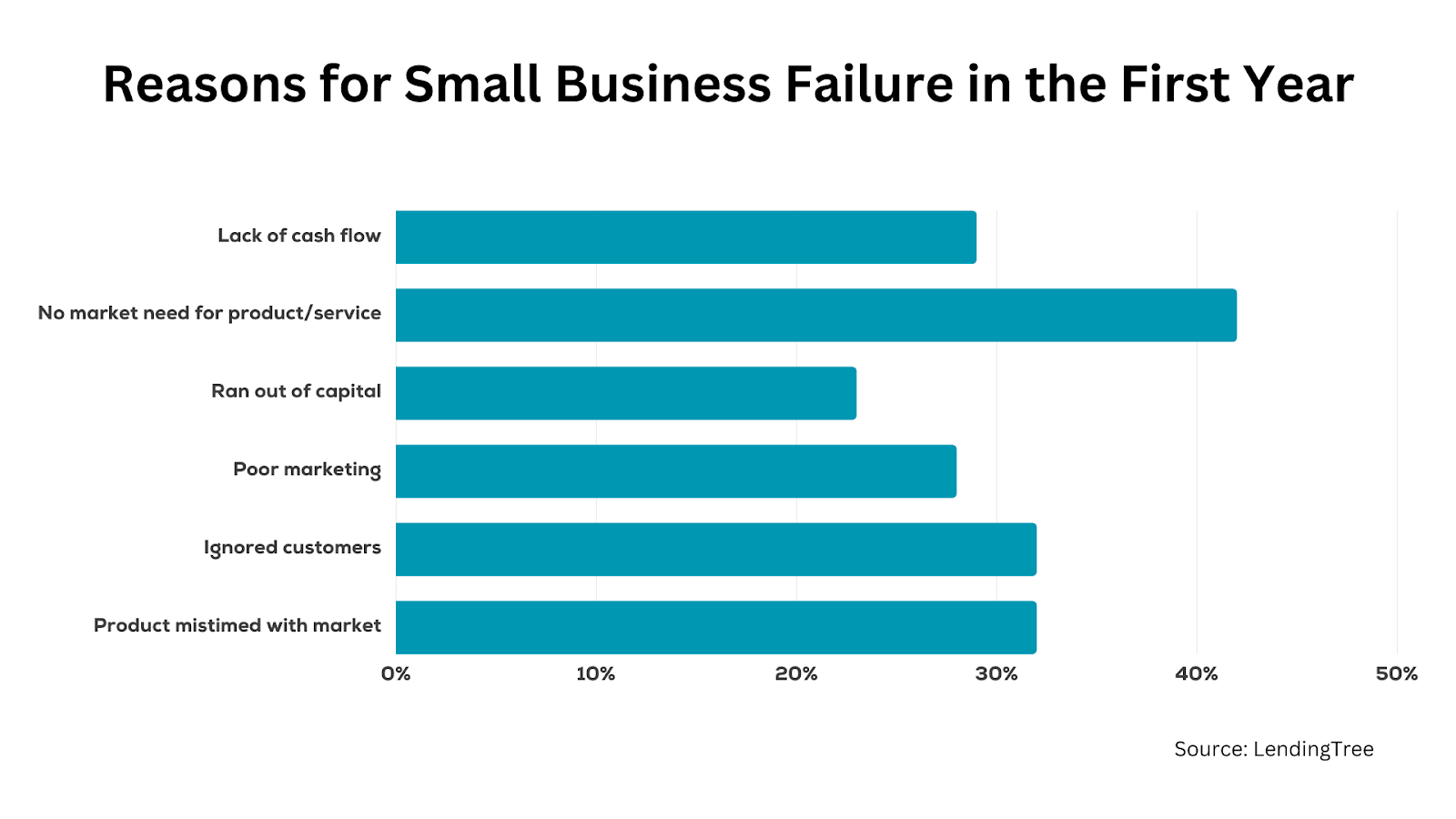In today’s rapidly evolving business landscape, the ability to adapt and bounce back from challenges is now more necessary than ever. This goes especially for aspiring entrepreneurs or anyone looking to build sustainable ventures. These days, the modern business landscape is marked by constant shifts, technological advancements, and unforeseen disruptions, making resilience a cornerstone of entrepreneurial success.
So what are the strategies and mindsets that set resilient entrepreneurs apart? In this post, we’ll explore real-world lessons on cultivating business resilience by analyzing the journeys of thriving founders who have overcome the tests of time.
The Essence of Resilience in Entrepreneurship
At its core, resilience refers to the ability to positively adapt and recoil in the face of adversity. In the context of entrepreneurship, it entails displaying grit and agility to pivot in response to market challenges and disruptions.
Take the example of Apple — after being ousted from his own company in the 1980s, Steve Jobs displayed immense resilience in rebuilding Apple to become the world’s most valuable company. His ability to evolve and connect with customers led Apple to disrupt multiple industries. This showcases resilience as an indispensable trait for enduring success.
Reading biographies and stories of resilient entrepreneurs like Steve Jobs can provide inspiration. Reading biographies and stories of resilient entrepreneurs, like Steve Jobs, can provide inspiration and valuable insights, making them some of the best books for entrepreneurs seeking to develop their own resilience.
Key Strategies Adopted by Successful Entrepreneurs
So, how can entrepreneurs embed resilience into their business strategy and leadership? Here are some proven techniques:
Embracing Change as an Opportunity
Visionary leaders view change and uncertainty as a canvas for possibility rather than a threat. A study on Inc.com revealed that 76% of entrepreneurs using vision boards believe their business now aligns with their initial vision – showcasing the power of visualizing desired outcomes amidst change.
Commitment to Continuous Learning
Leading entrepreneurs recognize the need for continuous self-improvement to keep up with market evolutions. They proactively seek new skills and domain knowledge. Maintaining a learning mindset and dedicating time for upskilling instills confidence to navigate unfamiliar terrain.
Building a Support System
Resilient leaders realize they can’t go it alone. Surrounding yourself with mentors, peers, and talented teams provides tangible and intangible support during challenging times.
Financial Prudence as a Safety Net
Making wise financial decisions is critical for sustainability. As highlighted in a Forbes study, ultra-successful founders maintain fiscal discipline, save capital for rainy days, and invest wisely to manage cash flow uncertainties.
To highlight why resilience is so critical, consider that over 20% of small businesses fail in their first year, often due to preventable issues like poor cash flow management or lack of market research. As this data shows, leading reasons for new business failure include

Case Studies: Businesses That Bounced Back
Tracing the journeys of renowned global businesses that rebounded after downturns provides invaluable lessons on resilience.
GE Appliances: Adaptability and Reinvention
A Harvard Business Review analysis of GE Appliances (GEA) showcases the critical role of adaptability and innovation in driving resilience. After facing lagging sales, GEA reinvented itself by focusing on customer-centric technology and aligning its brand identity to consumer preferences. This enabled a remarkable turnaround.
Nintendo: Never Giving Up
In the 1980s, established player Nintendo faced an existential threat as the gaming industry crashed. Most companies went bankrupt, but Nintendo resiliently bounced back by innovating fun home gaming consoles centering on quality and entertainment. Their persistence paid off – Nintendo still dominates gaming today!
Starbucks: Commitment to Core Values
Starbucks endured a crisis in 2008 when stores rapidly expanded, leading to a diluted brand and reduced quality. Howard Schultz returned as CEO and recalibrated based on Starbucks’ core mission of delivering premium end-to-end customer experiences. This resilience strategy revived Starbucks’ essence.
The Psychological Aspect: Building Resilience
While strong strategies are imperative, having an unshakeable mindset is equally critical for entrepreneurial resilience. Resilient leaders display grit, self-belief, and mental toughness in handling unpredictable business challenges and personal setbacks on the journey.
Adopting practices like mindfulness, maintaining work-life balance, visualizing success, and compartmentalizing stress are proven techniques to foster resilience.
Entrepreneurship can be a rollercoaster of emotions. However, viewing failures and pressures as growth experiences rather than self-defeating setbacks is vital. Refining your mental reflexes through turbulence builds anti-fragility.
Incorporating Technology: A Pillar of Resilience
In today’s digitally-driven era, technology and automation aid entrepreneurial resilience by providing data insights, increasing efficiency and productivity, allowing customization at scale, and enabling new business models not possible previously.
Flexible collaboration platforms, AI-driven predictive analytics, automated cybersecurity, portable cloud infrastructure, and smart inventory management are just some of the technologies that have become indispensable pillars of resilience.
Staying abreast of emerging technologies through dedicated R&D, hiring technical talent, and upskilling allows entrepreneurs to future-proof and drive continual adaptation.
Future-Proofing Your Business
The essence of resilience is future-proofing your business to handle constant change and uncertainty. Some best practices include:
- Scenario Planning: Envisioning plausible futures and preemptively developing contingency plans.
- Diversifying Offerings: Expanding into complementary products or services mitigates risk.
- Emphasizing Sustainability and Ethics: This builds durable community goodwill and loyalty.
By baking resilience into the organizational culture and strategies, entrepreneurs can meet disruptions head-on and transform challenges into springboards for success.
Frequently Asked Questions
How can startups build resilience with limited resources?
Startups can foster resilience by leveraging tools like virtual collaboration, freelancers, automation software, and cloud infrastructure, forming strategic partnerships to cost-effectively access skills and scale capabilities.
What are common mistakes that hinder entrepreneur resilience?
Key errors include burn-out culture, no support system, limited market analysis, lack of contingency plans, and resistance to change or technology. Avoiding these missteps strengthens resilience capacity.
How do successful entrepreneurs handle failures?
The most resilient founders view failures and setbacks as invaluable learning experiences. They analyze why something did not work, course correct, and strategically move forward with this knowledge.
By incorporating lessons from real-world resilient entrepreneurs, founders can build adaptable, future-ready businesses positioned to capitalize on new opportunities. Are you ready to bounce back stronger? The journey begins now.
Key Takeaway
Resilience – the ability to positively adapt amidst adversity – is a vital entrepreneurial trait for enduring success. Strategies like embracing change, continuous learning, building support networks, and financial prudence are proven techniques to strengthen business resilience.
Studying inspirational comeback stories provides valuable lessons for overcoming challenges.
Developing a tough, proactive mindset and healthy stress-management habits enables mental resilience. Leveraging technology and future-proofing your business is imperative for adaptability in today’s landscape.
The path of entrepreneurship will inevitably bring twists, turns, and obstacles. But by proactively cultivating resilience, founders can achieve their visionary business goals. The next big breakthrough begins with bouncing back stronger. What challenge will you overcome today?












